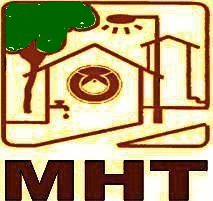 Beginning in early 2015, Mahila Housing Sewa Trust (MHT), a NGO founded in Ahmedabad, engaged Awaaz.De as technology partner. MHT works for water access, sanitation and equal housing in 200 urban slum areas all over Ahmedabad. Awaaz.De worked with MHT to integrate Streams, our group voice messaging service, with MHT’s housing board project that entails payment recovery from tenants.
Beginning in early 2015, Mahila Housing Sewa Trust (MHT), a NGO founded in Ahmedabad, engaged Awaaz.De as technology partner. MHT works for water access, sanitation and equal housing in 200 urban slum areas all over Ahmedabad. Awaaz.De worked with MHT to integrate Streams, our group voice messaging service, with MHT’s housing board project that entails payment recovery from tenants.
Awaaz.De met with the program manager and project coordinator to get know how our technology is helping them and their organization. Ms. Bharati Bhosale, Program Manager, MHT, said that the regular voice payment reminders to tenants’ mobile phones have made tenants more alert. “Tenants now keep their dues ready. When our sisters (the collection staff) make their visits, the money is ready unlike earlier when our sisters found it quite difficult to acquire the dues… they used to have arguments and keep coming back most of the time.” She also added that in April 2015, 55% of their tenants received the voice payment reminders. This number is gradually increasing”, she said.
She also talked about a particular instance wherein a tenant almost forgot to keep the sum ready when the collection staff approached her. “A tenant claimed she fell asleep but the voice reminder woke her up and she arranged for the sum and paid her dues.”
In general, work and daily operations for the MHT collection staff have thus become much less strenuous. However, has the IVRS technology helped MHT from a managerial perspective? Ms. Bhosale responded in the affirmative. She said, “management has become easier. We are saving on unnecessary time and costs that were spent on simply collecting dues. We did not know or use IVRS before. For our sisters this is a completely new yet interesting experience”.
When asked about her views on the use of ICTs for MHT’s projects, Ms. Bhosale said that ICTs and their knowledge is indispensable in this day and age.“When I was new to MHT I did not know how to operate a computer, but I had to learn. Likewise, our sisters, women must learn and access ICTs, or else they’ll be left behind, thrown far away from the mainstream… they have to learn”, she signs off.